Quranic Quotes & Sayings
Enjoy reading and share 11 famous quotes about Quranic with everyone.
Top Quranic Quotes
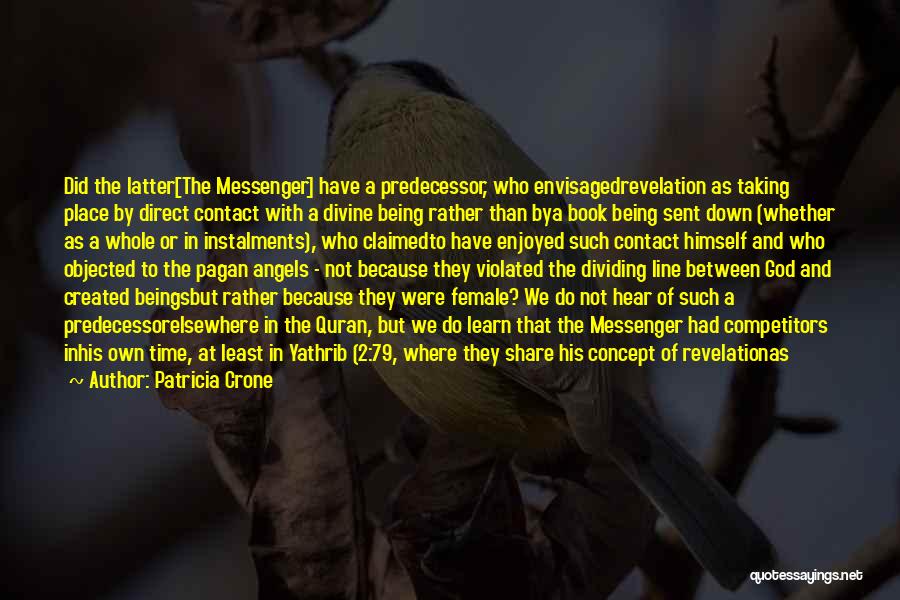
Did the latter[The Messenger] have a predecessor, who envisaged
revelation as taking place by direct contact with a divine being rather than by
a book being sent down (whether as a whole or in instalments), who claimed
to have enjoyed such contact himself and who objected to the pagan angels -
not because they violated the dividing line between God and created beings
but rather because they were female? We do not hear of such a predecessor
elsewhere in the Quran, but we do learn that the Messenger had competitors in
his own time, at least in Yathrib (2:79, where they share his concept of revelation
as a book), so there is nothing implausible about the proposition that there
were preachers before him too, including some whose preaching anticipated
features of his own. — Patricia Crone
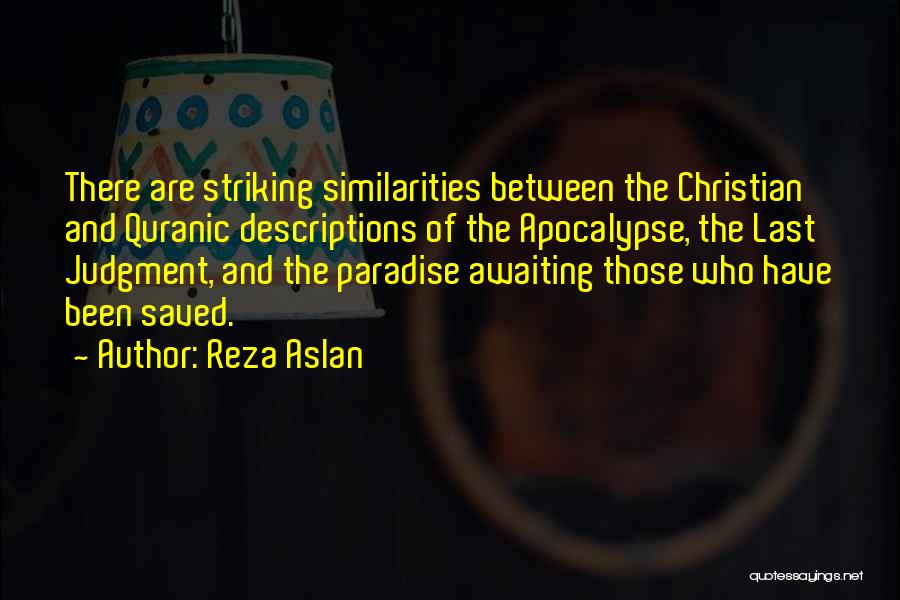
There are striking similarities between the Christian and Quranic descriptions of the Apocalypse, the Last Judgment, and the paradise awaiting those who have been saved. — Reza Aslan
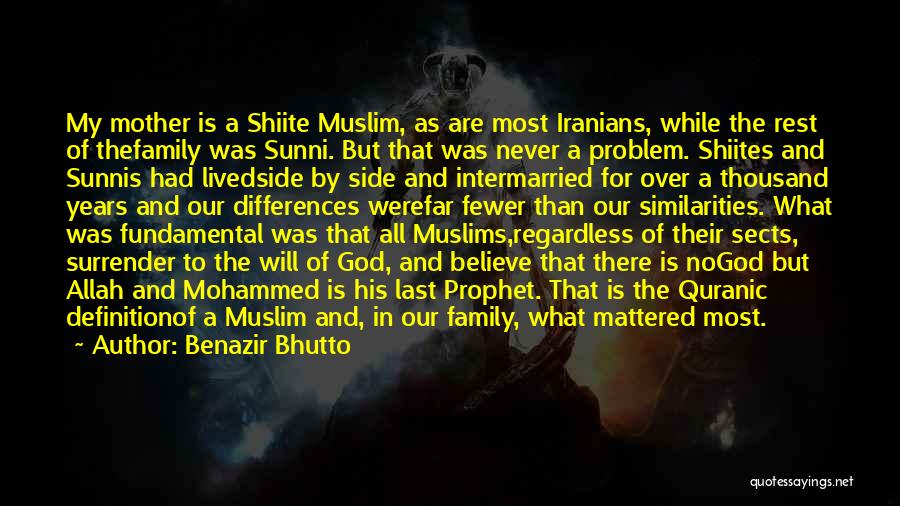
My mother is a Shiite Muslim, as are most Iranians, while the rest of the
family was Sunni. But that was never a problem. Shiites and Sunnis had lived
side by side and intermarried for over a thousand years and our differences were
far fewer than our similarities. What was fundamental was that all Muslims,
regardless of their sects, surrender to the will of God, and believe that there is no
God but Allah and Mohammed is his last Prophet. That is the Quranic definition
of a Muslim and, in our family, what mattered most. — Benazir Bhutto
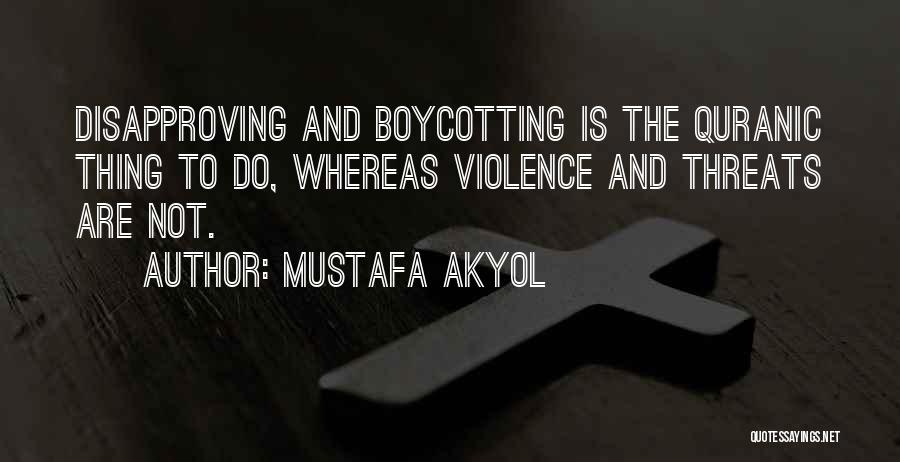
Disapproving and boycotting is the Quranic thing to do, whereas violence and threats are not. — Mustafa Akyol

We are nearer to him than his jugular vein. — Anonymous
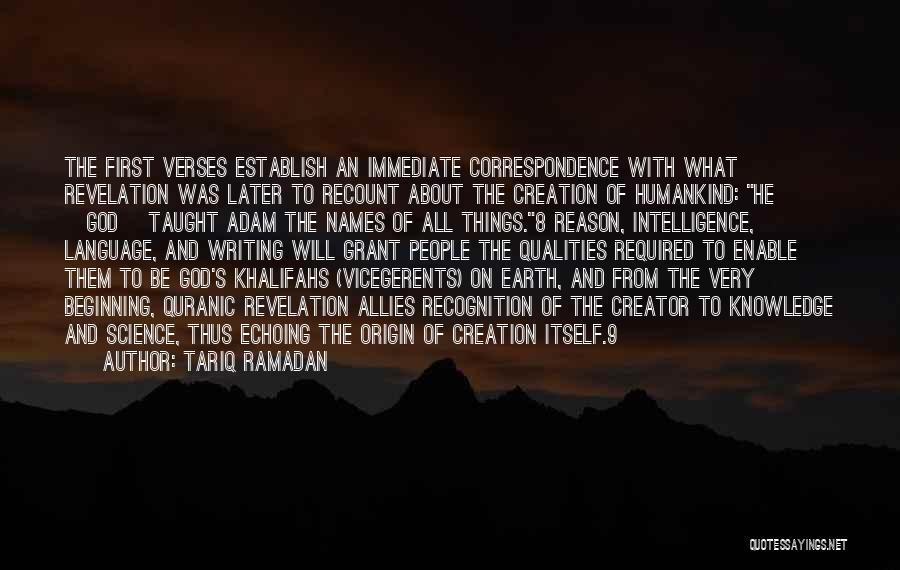
The first verses establish an immediate correspondence with what Revelation was later to recount about the creation of humankind: "He [God] taught Adam the names of all things."8 Reason, intelligence, language, and writing will grant people the qualities required to enable them to be God's khalifahs (vicegerents) on earth, and from the very beginning, Quranic Revelation allies recognition of the Creator to knowledge and science, thus echoing the origin of creation itself.9 — Tariq Ramadan
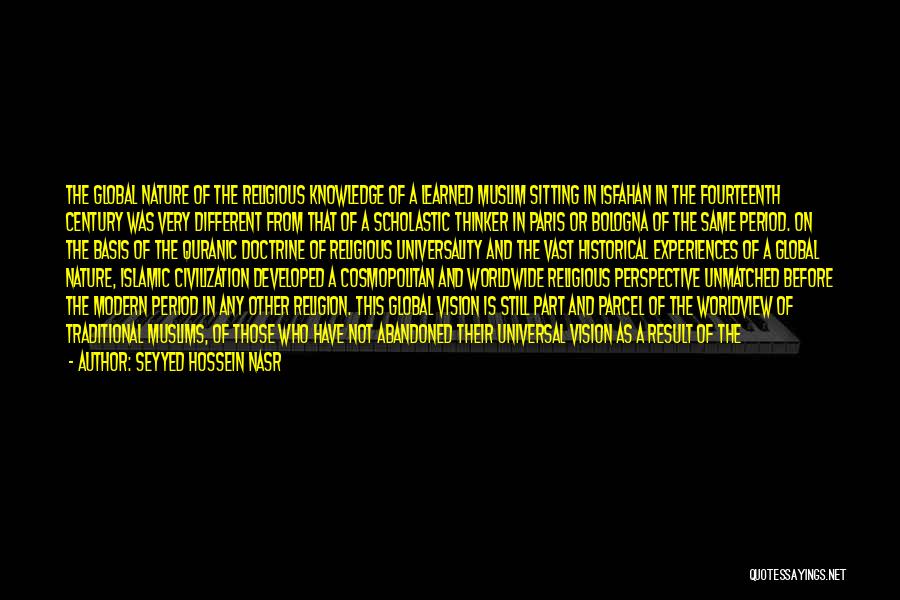
The global nature of the religious knowledge of a learned Muslim sitting in Isfahan in the fourteenth century was very different from that of a scholastic thinker in Paris or Bologna of the same period. On the basis of the Quranic doctrine of religious universality and the vast historical experiences of a global nature, Islamic civilization developed a cosmopolitan and worldwide religious perspective unmatched before the modern period in any other religion. This global vision is still part and parcel of the worldview of traditional Muslims, of those who have not abandoned their universal vision as a result of the onslaught of modernism or reactions to this onslaught in the form of what has come to be called fundamentalism. — Seyyed Hossein Nasr
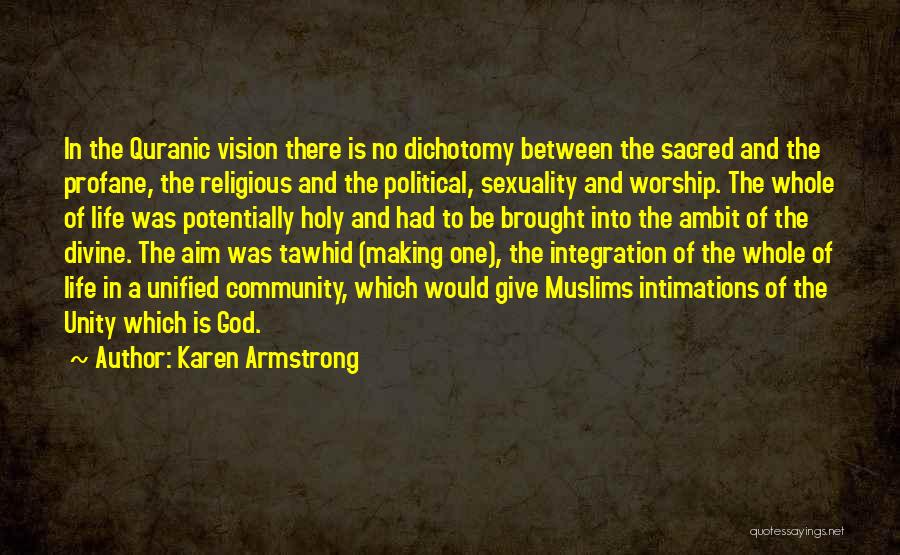
In the Quranic vision there is no dichotomy between the sacred and the profane, the religious and the political, sexuality and worship. The whole of life was potentially holy and had to be brought into the ambit of the divine. The aim was tawhid (making one), the integration of the whole of life in a unified community, which would give Muslims intimations of the Unity which is God. — Karen Armstrong
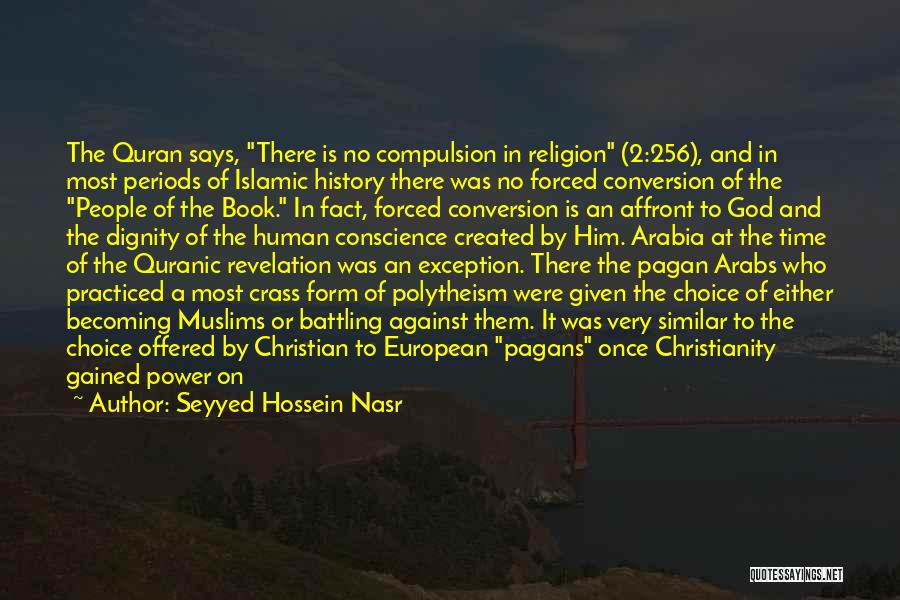
The Quran says, "There is no compulsion in religion" (2:256), and in most periods of Islamic history there was no forced conversion of the "People of the Book." In fact, forced conversion is an affront to God and the dignity of the human conscience created by Him. Arabia at the time of the Quranic revelation was an exception. There the pagan Arabs who practiced a most crass form of polytheism were given the choice of either becoming Muslims or battling against them. It was very similar to the choice offered by Christian to European "pagans" once Christianity gained power on that continent. But even in Arabia, the Jews and Christians were not forced to become Muslims. — Seyyed Hossein Nasr
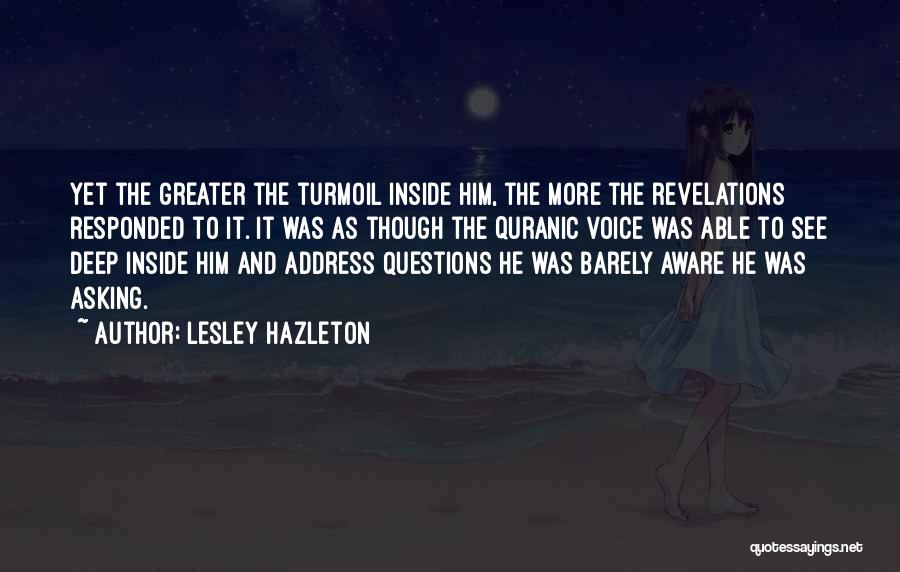
Yet the greater the turmoil inside him, the more the revelations responded to it. It was as though the Quranic voice was able to see deep inside him and address questions he was barely aware he was asking. — Lesley Hazleton
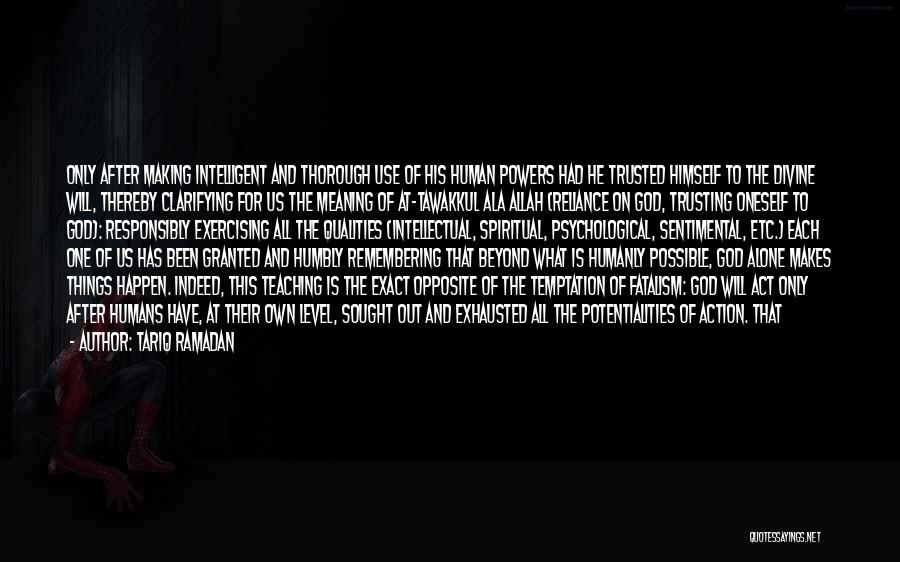
Only after making intelligent and thorough use of his human powers had he trusted himself to the divine will, thereby clarifying for us the meaning of at-tawakkul ala Allah (reliance on God, trusting oneself to God): responsibly exercising all the qualities (intellectual, spiritual, psychological, sentimental, etc.) each one of us has been granted and humbly remembering that beyond what is humanly possible, God alone makes things happen. Indeed, this teaching is the exact opposite of the temptation of fatalism: God will act only after humans have, at their own level, sought out and exhausted all the potentialities of action. That is the profound meaning of this Quranic verse: "Verily never will God change the condition of a people until they change what is in themselves."1 — Tariq Ramadan





